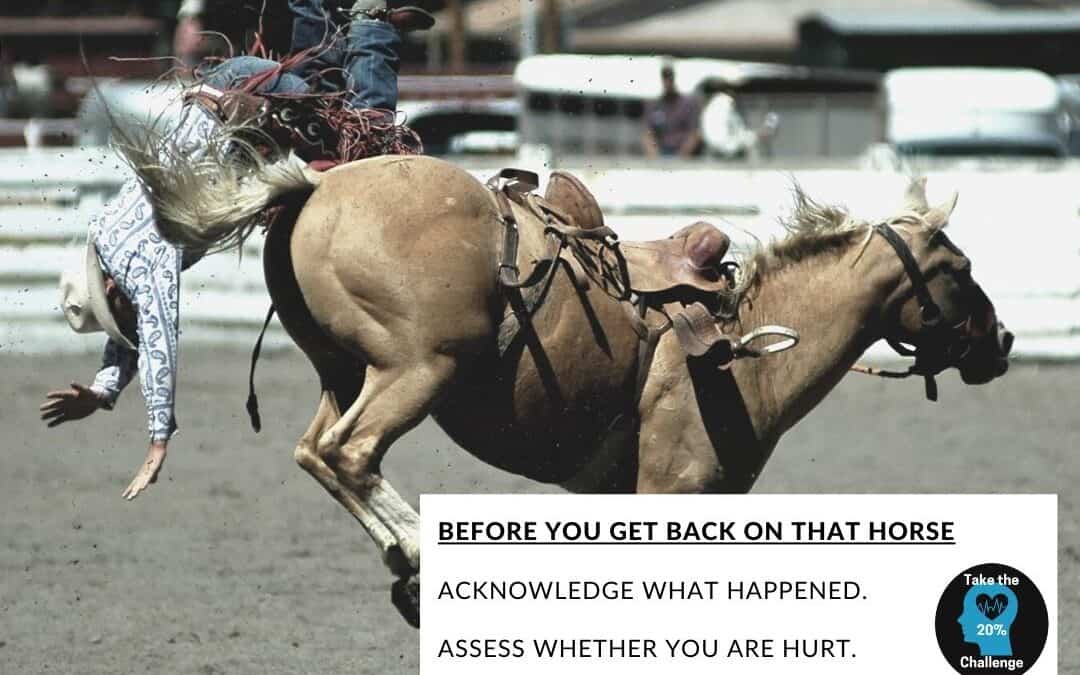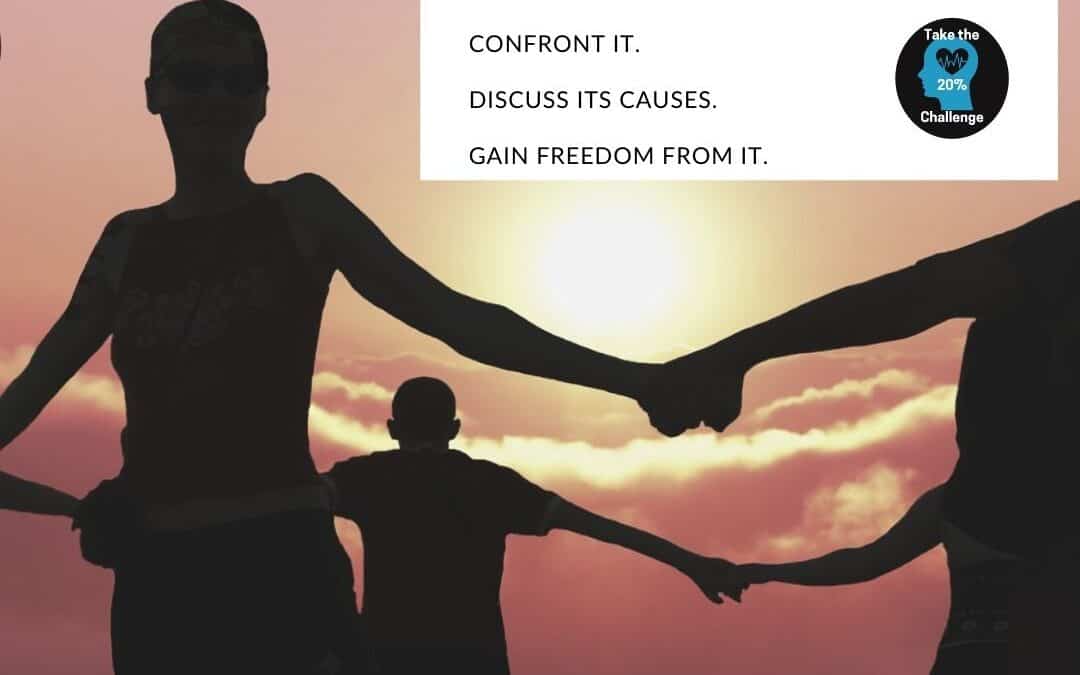
Get Back on the Horse, but Only When Ready
Most people who will tell you to “get back on that horse” have never been bucked off by one. From experience, I can tell you they are skipping a few steps.
The first question asked after being bucked off is, “What the heck was that?”, then we ask, “Am I ok?” along with a frantic pat-down. After that, we slowly stand to confirm we are steady on our feet, check the horse and then, if it is appropriate to do so at that time, do we get back on that horse.
The quick analogy of getting back on the horse can leave the impression the goal is to soldier on without acknowledging the hurt, harm or emotions that coincide with life events.
Psychologists tell us differently.
“We need to stop minimizing our emotions. We need to stop expecting ourselves to act in a way that is inhuman—without feeling.
“What would it look like for us to simply pause and say, “Wow, I’m feeling a lot of pain right now”—no judgment, no labels, just simply aware of what we are experiencing? What is it that is so difficult about vulnerability that we will jump through every possible loophole to get out of dealing with it?”
Why Do We Minimize Our Emotions? | Psychology Today
Elders tell us differently also.
“If we don’t deal with our trauma, our trauma will deal with us.”
So the next time you have a hard day, before getting back on the horse, check-in and acknowledge how it affected you and make sure you have the supports and resources you need. Then, when ready, get back on that horse.
Discuss.




Recent Comments